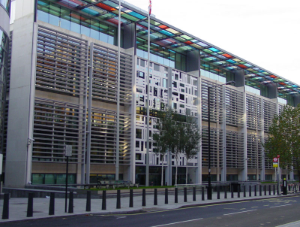Parliamentary and Health Service Ombudsman upheld 75% of complaints about the Home Office in 2015-16
A report released today by the independent complaint handling service for government departments says that the number of complaints upheld against the Home Office is higher than any other department.
 Image credit: UK GovernmentThe report by the Parliamentary and Health Service Ombudsman, which covers the year 2015-16, is here.
Image credit: UK GovernmentThe report by the Parliamentary and Health Service Ombudsman, which covers the year 2015-16, is here.
The Ombudsman service upheld 75% of complaints about the Home Office, compared to 39% about the Department for Work and Pensions, 36% about the Ministry of Justice and 10% about Her Majesty's Revenue & Customs.
Case studies featured in the report included a wrong decision by UK Visas and Immigration which left a woman in her 80s stranded abroad for eight weeks.
The section on the Home Office from the Parliamentary and Health Service Ombudsman's report is reproduced below:
"Home Office
• 74 completed investigations in 2015-16.
• We fully or partly upheld 75%, up from 60% in 2013-14 and 69% in 2014-15.
• 2015-16: 11 upheld and 44 partly upheld complaints.
• 2014-15: 39 upheld and 70 partly upheld complaints.
• 40% of all of the complaints we upheld included concerns about decisions, up from 26% in 2014-15.
The high uphold rate for complaints about the Home Office was similar across all of its immigration directorates. It is important to stress that the Home Office decides successfully on a vast number of cases every year, and that the only cases we see are about unresolved complaints. However, our casework shows clearly that there were some failings in a majority (75%) of the cases that we investigated.
The Home Office must make learning from complaints a priority. The fact that the uphold rate has increased steadily over the last three years suggest that opportunities to improve are being missed. It is important that members of the public understand how decisions have been made; we also want them to feel confident that if they complain, their concerns will be listened to fairly, acted upon appropriately, and in good time.
We upheld a number of cases where people had concerns about the way in which visa decisions had been made. Our case studies about UK Visas and Immigration (UKVI) show that where mistakes about visa decisions were made, they were sometimes made worse by a failure to understand and deal adequately with the impact that they had on individuals and their families.
We have seen several instances of people being unfairly separated from loved ones, and suffering from severe uncertainty and financial hardship as a consequence of an incorrect decision. Financial hardship occurred, for example, because UKVI did not compensate the complainant appropriately for their suffering as a result of a loss of earnings and did not refund their court or legal fees.
In relation to the way the Home Office handles complaints, the main reason why people complained to us in 2015-16 was that they did not feel that the Home Office had done enough to put things right or apologise properly. This was the main factor in 31% of the investigations we upheld. This indicates that in a significant number of cases we looked at, the Home Office had rightly identified failings but did not remedy the complaint in the right way.
This is also a concern in our cases about Border Force, where the uphold rate increased from 25% to 82% between 2013-14 and 2015-16. It is important to note that of these complaints we fully upheld only one. However, in almost all of the cases that we partly upheld (12), there were significant concerns about the handling of complaints. In a majority of these cases we found that the decision by Border Force to detain someone or to refuse them entry to the UK was properly made, but the quality of complaint handling was not good enough.
Our casework shows repeated issues such as poor communication, delay or a failure to meet timeframes, a lack of response and misplaced or lost records. Where a complaint is handled poorly it is highly unlikely that the complainant will receive an apology or the appropriate remedy.
This process can be frustrating and exhausting for members of the public. Often, those who complain simply want an acceptance that something went wrong, and to see that steps have been taken to stop the same thing from happening to someone else."